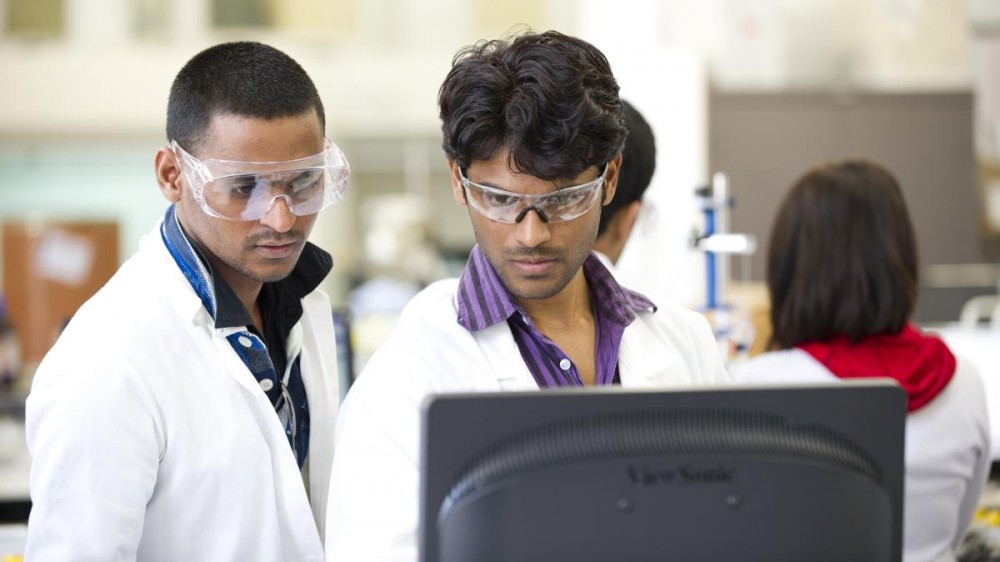Over £1M awarded in our fifteenth year of awarding PhD Studentships

We have awarded nine new PhD Studentship projects focusing on developing the next generation of replacement technologies across a wide range of scientific disciplines.
This year to ensure the UK has a scientific workforce able to respond to sector demand for expertise and skills in non-animal technologies we have adapted our PhD scheme to focus on these methods. The overall aim of our PhD schemes, however, has not changed since the scheme was established in 2009 – to embed the 3Rs in the training of early career researchers from the beginning of their scientific career.
Including this year’s awards, over 170 students have been supported through NC3Rs funding and co-funded Studentships with the British Heart Foundation (BHF) and Unilever. The latest cohort of students will focus on projects including developing a multicellular self-assembling organoid model replacing the use of mice in some studies of chronic obstructive pulmonary disease, characterising in vitro embryo-like implantation models developed from human, marmoset or mouse stem cells, and a computational model of fibrosis that replicates the heterogeneity of the disease replacing the use of animals in some fibrotic studies and drug screening experiments.
We also anticipate one additional award being made with the BHF. Details will be published upon ratification of the award early in 2024.
NC3Rs PhD Studentship awards are made directly to the Principal Supervisors. Interested students should contact the respective supervisors.
Studentships awards 2023
Bioreactors to Replace Animal Testing in Bone Research – Dr Richard van Arkel, Imperial College London (36 months).
Aim: Characterise bioreactor culture conditions for bone tissue to replace the use of mice and sheep in testing orthopaedic intervention technologies such as orthobiologics and tissue engineered implants.
Establishment of a variant-to-function framework for cholestatic diseases using human liver in vitro models – Dr Inés Cebola, Imperial College London (48 months).
Aim: Characterise two in vitro models of the human liver to determine which more accurately replicates cholestasis and demonstrate their utility to replace some rodent studies by examining the genetic factors involved in liver disease.
A computational model of fibrosis and the cardiac conduction system: the next generation of virtual heart models for research and teaching – Dr Michael Colman, University of Leeds (48 months).
Aim: Develop an in silico model of fibrosis that integrates human electrophysiological and anatomical features and the heterogeneous nature of the disease to replace the use of animals in some fibrotic studies and drug screening experiments.
Developing a digital twin of 3D vascular systems to study haemorrhagic viral diseases – Dr Carina Dunlop, University of Surrey (48 months).
Aim: Develop a cellular level in silico model of 3D multicellular vascular organoids to investigate haemorrhagic diseases and potential drug screening to replace the use of mice.
Anesthesia-on-chip: Modelling the impact of fetal anesthesia on neural development – Dr Gabriel Galea, University College London (36 months).
Aim: Characterise an in vitro model to replace mice in research to understand the impact of anaesthesia on a foetus when undergoing surgery in utero such as to correct spina bifida.
Tractable human distal lung organoid model as a new efficient tool to study mesenchymal-epithelial interactions in COPD – Dr Anna Krasnodembskaya, Queen’s University Belfast (36 months).
Aim: Demonstrate the utility of a self-assembling organoid model created from human epithelial, endothelial and mesenchymal stem cells to replace the use of mice in lung regeneration studies in health and disease.
Electrospun hollow fibres for muscle tissue engineering in a soft bioreactor chamber – Dr Pierre-Alexis Mouthuy, University of Oxford (36 months).
Aim: Develop a humanised in vitro muscle construct with both vascular tissue and multidirectional mechanical stimulation to study tissue function in health and disease, replacing the use of mammals in studying pathophysiology and developing treatment options.
In vitro modelling of bone infection for osteomyelitis and osteoradionecrosis – Dr Gowsihan Poologasundarampillai, University of Birmingham (48 months).
Aim: Develop multiple in vitro models including 3D iPSC-based cell cultures and microfluidic platforms to create a vascularised model of bone replacing the use of rodents in studying bone infections.
Novel in vitro endometrial scaffolds to investigate embryo implantation and early development – Dr Peter Rugg-Gunn, Babraham Institute Cambridge (48 months).
Aim: Demonstrate the utility of endometrial scaffolds as an in vitro implantation system using embryo-like models developed from human, marmoset or mouse stem cells to replace animals in early developmental studies.
